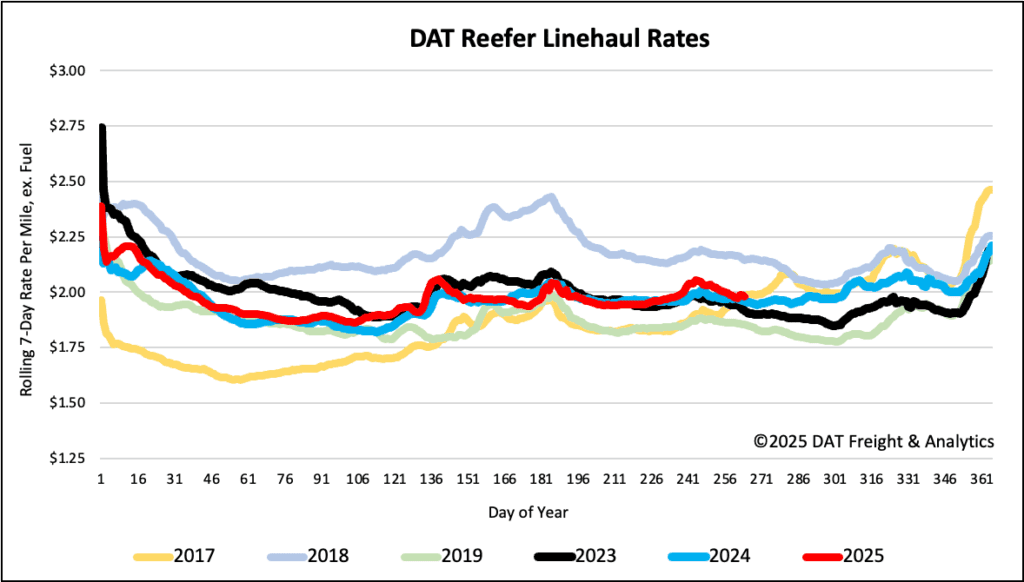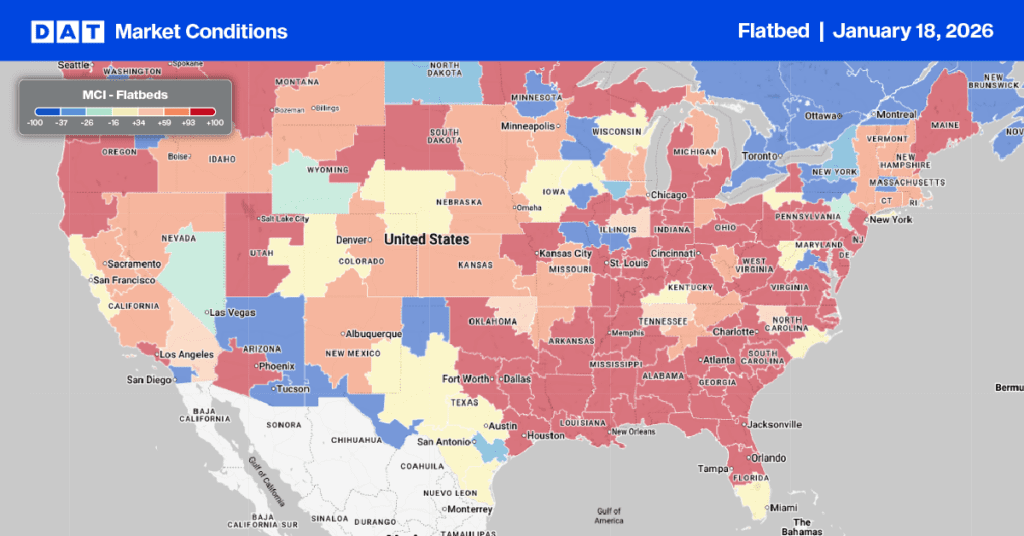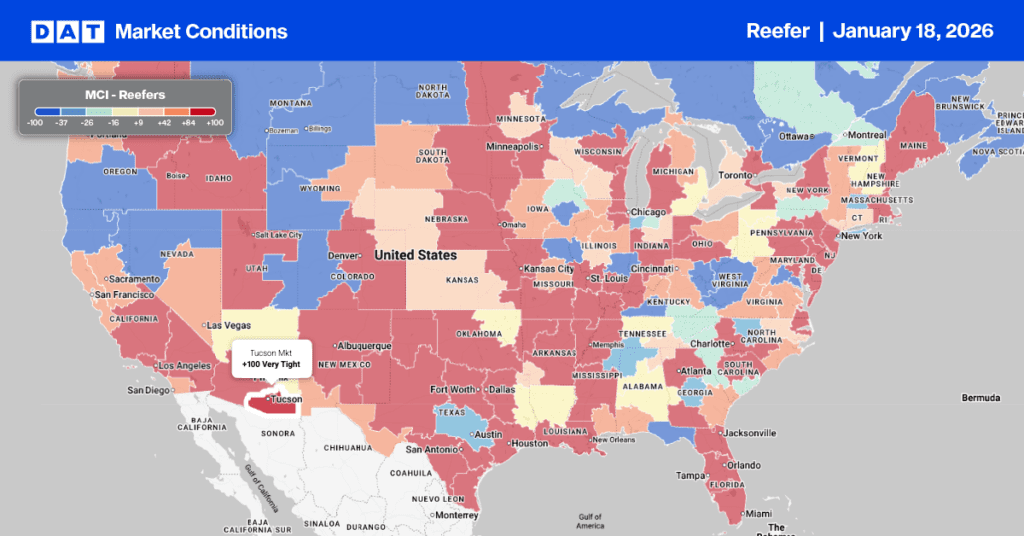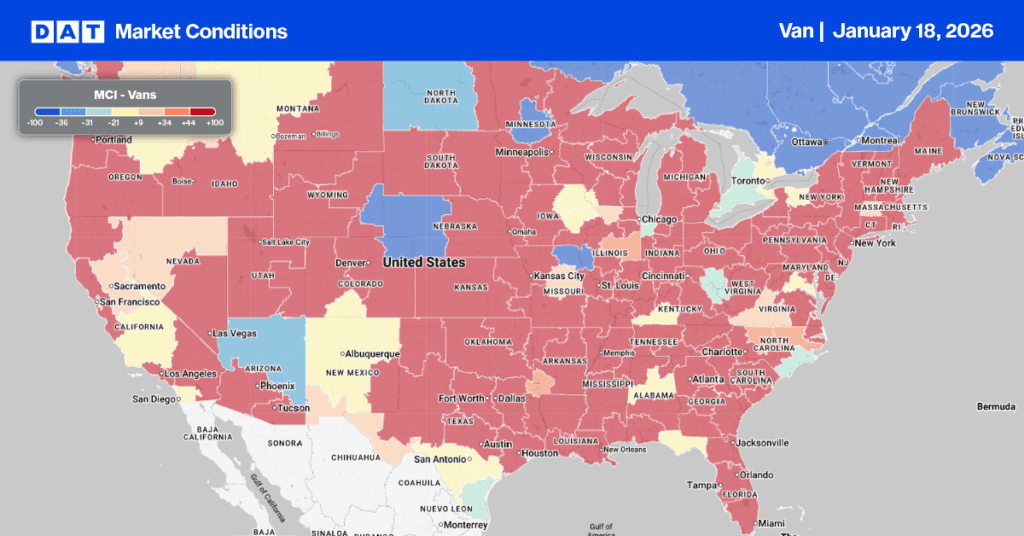Washington State is a national leader in frozen red raspberry production, contributing an impressive 90% of the nation’s supply. Each summer, over 50 million pounds or almost 1,200 refrigerated truckloads of red raspberries are harvested in Lynden, Washington, specifically for freezing.
Get the clearest, most accurate view of the truckload marketplace with data from DAT iQ.
Tune into DAT iQ Live, live on YouTube or LinkedIn, 10am ET every Tuesday.
Fresh-picked raspberries have a short shelf life, losing flavor and nutrients rapidly after about four hours. This is why Washington red raspberries are grown exclusively for freezing. During harvest, machine pickers swiftly transport the berries at peak ripeness for immediate freezing. Within minutes, they are air-chilled and frozen to lock in their perfect sweet-tart flavor, vibrant color, and antioxidant power.
A prime example of this commitment to quality is the Rader Farms facility, where raspberries are rapidly chilled, sorted, washed, and then frozen at their peak nutritional value. Unlike home freezing methods, these raspberries are quickly moved into freezing tunnels. In approximately eight minutes, they are flash-frozen through intensely cold temperatures (deep into the negatives) and constant rotation. This technique ensures the raspberries are frozen at their optimal ripeness, while maintaining their shape and preventing them from sticking together.
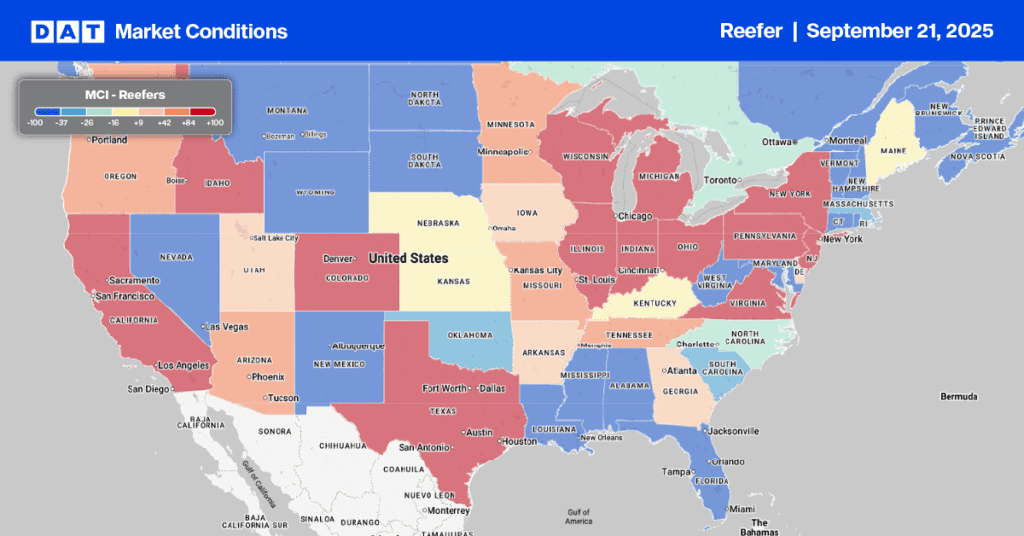
Load-to-Truck Ratio
Last week, reefer load post volumes rose by 4%, marking a 44% increase year-over-year. Despite this increase, volumes remained consistent with the pre-pandemic average for Week 38. Concurrently, a 11% decrease in carrier equipment posts led to the reefer load-to-truck ratio settling at 10.02 for the week.
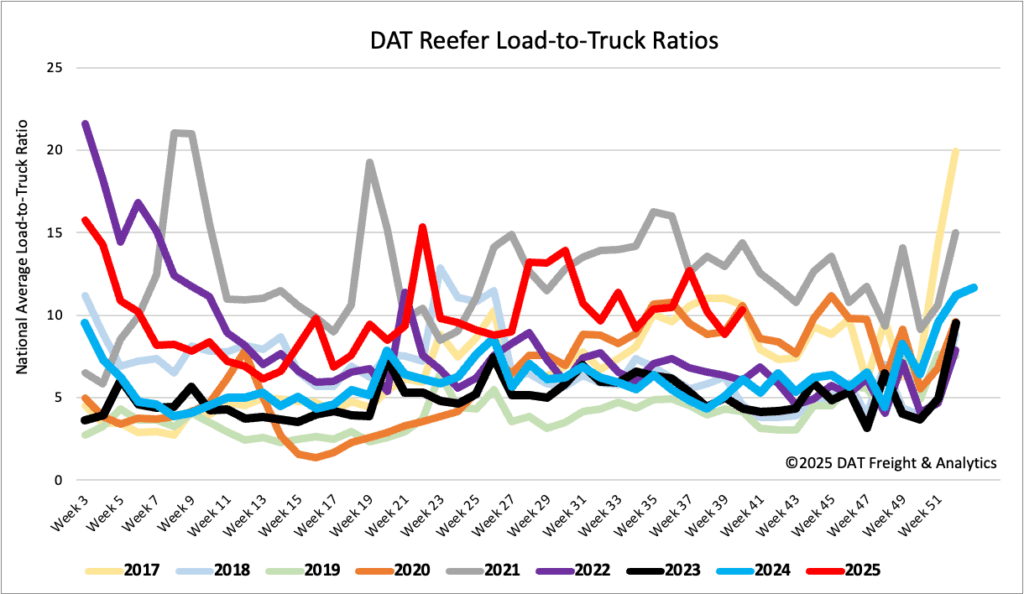
Spot rates
Nationally for all reefer temperature zones, the 7-day rolling average for carriers dropped $0.02/mile to just under $2.00 per mile, marking a $0.02 increase compared to the previous year.
There was a shortage of trucks in the Yakima Valley in the Pacific Northwest as Fall produce comes online last week. Carriers to haul apples, pears, rhubarb and blueberries were in high demand, with outbound loads paying $2.86/mile, according to the USDA.
For all produce-specific loads, the USDA reported an average rate of $3.72 per mile, down $0.05/mile last week, for the week ending September 16, 2025.
